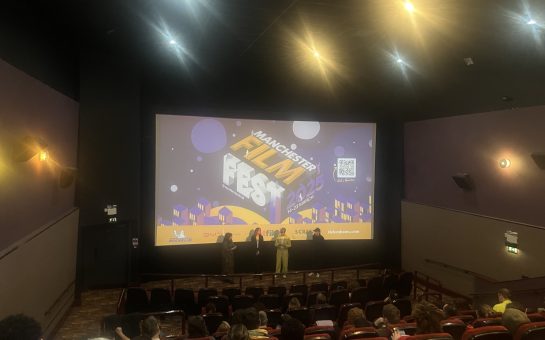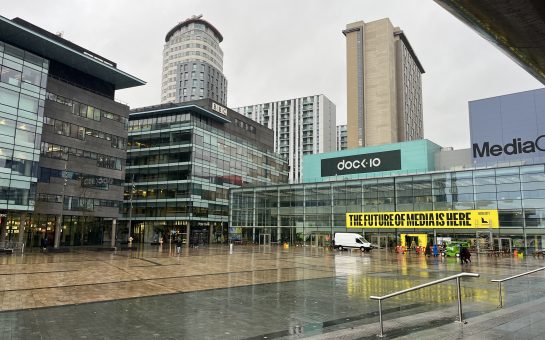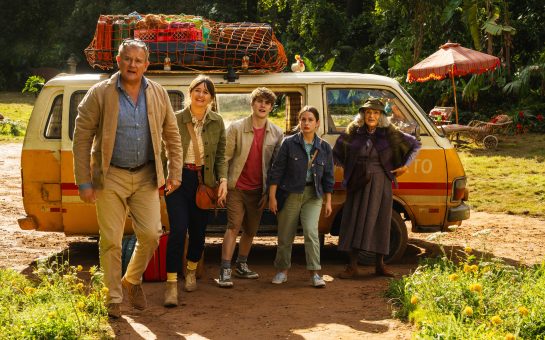The Resident Evil series has been ongoing for 25 years across multiple console generations and mediums and this is a retrospective of the series highs and lows.
This year marks the 25th anniversary of the original Resident Evil game which released in March 1996 and the series has come a long way since its inception, spanning multiple console generations, platforms, spin-off titles and mediums.
Last week saw the release of the latest entry Resident Evil: Village, the eighth mainline game which continues the story of Ethan Winters from Resident Evil 7: Biohazard, released in 2017.
With more content releasing later this year, Capcom are investing more and more time and effort into the franchise going forward.
To celebrate the 25th anniversary, here are some of the big moments from the franchise history which went on to shape the series into what it is today.
Resident Evil (1996)
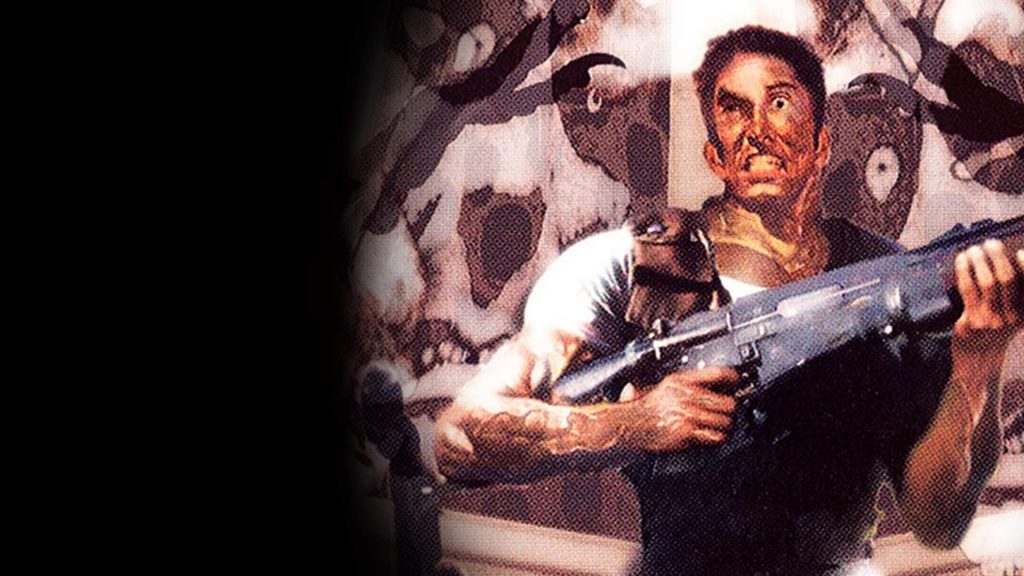
It was developed for the original PlayStation and went by the name Biohazard in Japan.
When it was localised for western audiences, it was renamed Resident Evil and released in the UK on 1st August 1996.
RE takes place in the Arklay Mountains near Racoon City, a location that would become synonymous with the series going forward.
It followed a group of police officers from the Racoon City Police Department called Special Tactics and Rescue Service (S.T.A.R.S) who are sent to investigate a series of strange events in the mountains, as well as the disappearance of Bravo Team who went to investigate first.
The player chooses from two main protagonists; Chris Redfield and Jill Valentine, each offering a slightly altered version of events to the game’s story, as they take refuge in the Spencer Mansion and have to fight to survive the zombies found within.
Along the way they uncover the truth about the Umbrella Company, a pharmaceutical company that has secretly been developing bioweapons.
It featured a fixed camera style of gameplay which the game helped to popularise and is synonymous with the original trilogy of games to this day.
This combined with the tank style movement controls, meant that enemies could appear just off-screen and surprise players when the angle changes to reveal them.
Upon release, RE received critical praise and went on to sell 5.08 million units across multiple editions on PlayStation, making more than $200 million.
The sequels, Resident Evil 2 and Resident Evil 3: Nemesis, released in 1998 and 1999 respectively and kept the same fixed camera style gameplay, telling the story of what happened after the events of the first game.
Resident Evil movie (2002)
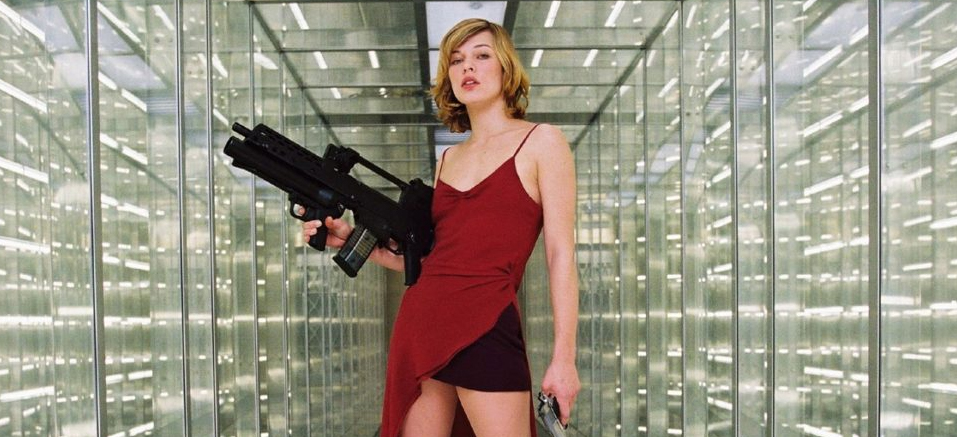
A movie adaptation of the original game was released in 2002.
It was written and directed by Paul W.S. Anderson, who worked on the original Mortal Kombat movie in 1995, and starred Milla Jovovich and Michelle Rodriguez.
It was loosely based on the games, using the series lore and creatures rather than directly adapting the story and characters.
Jovovich played Alice, an original character and series protagonist who awakens with amnesia in a mansion above the Hive, a secret underground facility operated by Umbrella.
The films received negative reviews from critics, however the first entry went on to make $102 million worldwide.
There were six films in total released for this continuity of films with the last releasing in 2017.
Resident Evil 4 (2005)
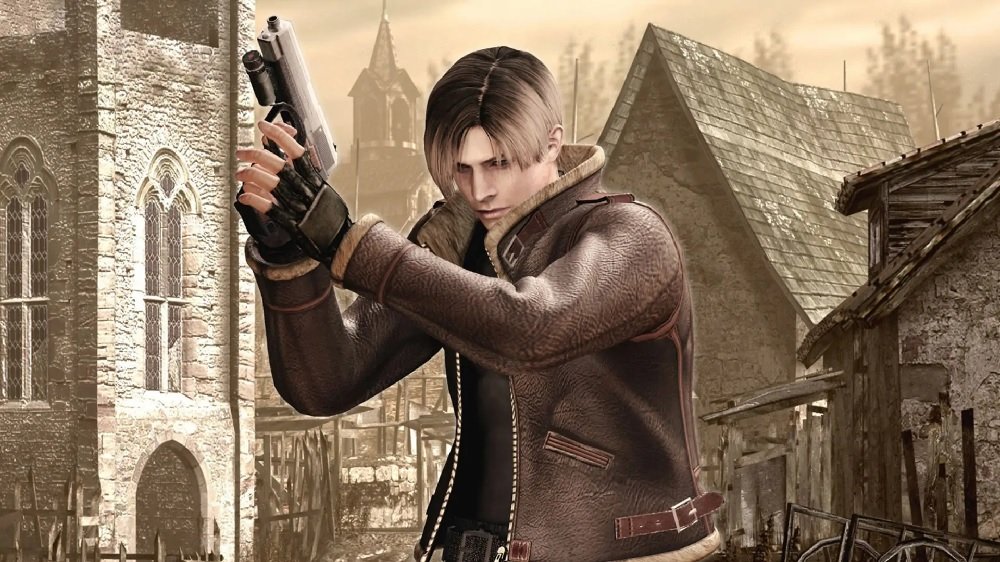
Resident Evil 4 marked the biggest change for the video game series at the time, swapping the traditional fixed camera perspective for an over-the-shoulder angle that it is considered to have popularized.
Releasing in 2005 for the GameCube, it featured the protagonist from RE2 Leon S. Kennedy as he is sent to rescue the president’s daughter Ashley Graham, from a remote village in Spain after she is kidnapped by a cult calling themselves Los Illuminados.
The game featured a greater focus on action and combat over the traditional horror elements the series was known for, including inventory management, quick-time events, and escorting Ashley to safety.
It has been released on 11 different game systems across multiple generations, the most recent version being on Nintendo Switch in 2019.
The game was the second best-selling game of the franchise, with a combined total of 10.4 million units sold and in 2012, it was awarded the title of Best-selling Survival Horror Game in the Guinness World Records Gamer’s Edition.
After the success of the new direction for the series, Capcom would later release Resident Evil 5 in 2009 for next generation systems, followed by Resident Evil 6 in 2012.
RE6 was a critical flop and Capcom put the series on hold for several years after that in order to refocus their efforts.
Resident Evil 7: Biohazard (2017)
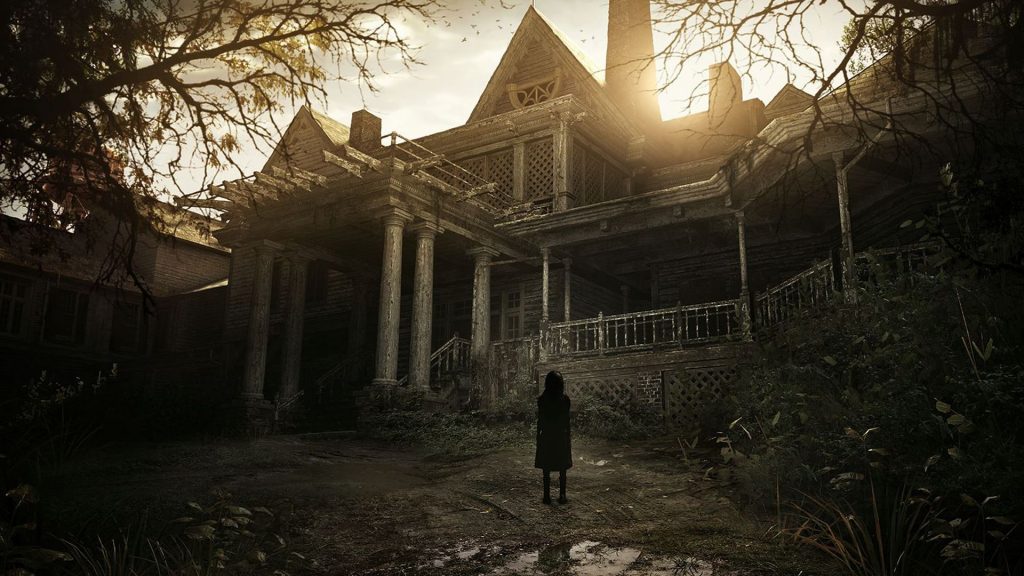
Releasing early 2017, Resident Evil 7: Biohazard was the series first entry to be set in the first-person and featured a mode to play the whole game in virtual reality with PlayStation VR.
It told a completely new story separate from the series established lore and had a greater focus back to the horror elements the series is known for, while keeping some of the more action sequences newer fans would be familiar with.
The story followed new character Ethan Winters who receives a message from his wife Mia who has been missing for three years.
This leads him to the Baker farm in Dulvey, Louisiana where he encounters the Baker family, the game’s main antagonists who hunt Ethan throughout the game as he attempts to escape with Mia and uncover the truth behind their strange behaviour.
RE7 takes inspiration from the 1981 horror film The Evil Dead with its single location setting, focus on more enclosed environments and sense of unease in a traditionally normal environment.
By the end of the game, there are connections drawn to the wider series lore including the Umbrella Corporation, bioweapons and the return of fan-favourite character Chris Redfield.
The game was well received upon release averaging around 85/100 on Metacritic, selling 8.5 million units as of 2020 and being nominated for 29 awards, 10 of which it won including Best VR Game from the Golden Joystick Awards 2017.
Resident Evil 2 (2019)
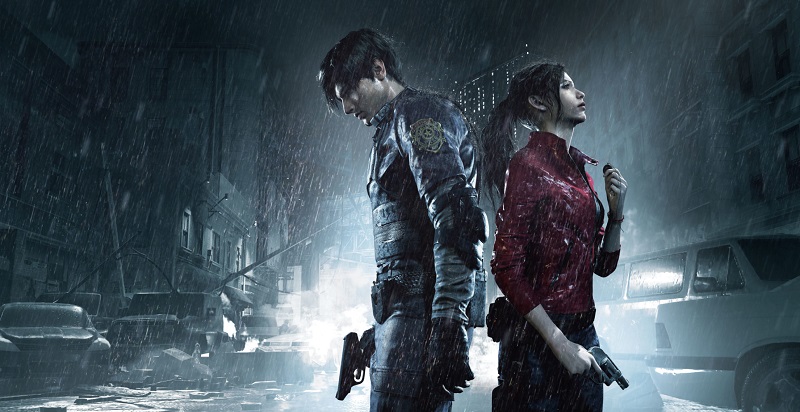
A remake of the original Resident Evil 2 was revealed to be in early development in 2015, being officially unveiled during an E3 conference in 2018.
The game retold the core story of the original title but was built using the same game engine as RE7 and used the over-the-shoulder gameplay style from RE4.
It featured the same two playable characters as the original release, Leon S. Kennedy and Claire Redfield and offered players four versions of events, as each character has an ‘A’ side and a ‘B’ side to their story.
RE2 remake was also well received, being given the Metacritic ‘Must-play’ banner as well as a nomination for Game of the Year at The Game Awards 2019.
Capcom would go on to remake the next game in the series, Resident Evil 3 in 2020 adding upon the style and mechanics implemented in RE2 remake but would cut the games overall length down from the original 1999 version, choosing to keep a tighter narrative focus with more replay value.
Resident Evil: Village (2021)
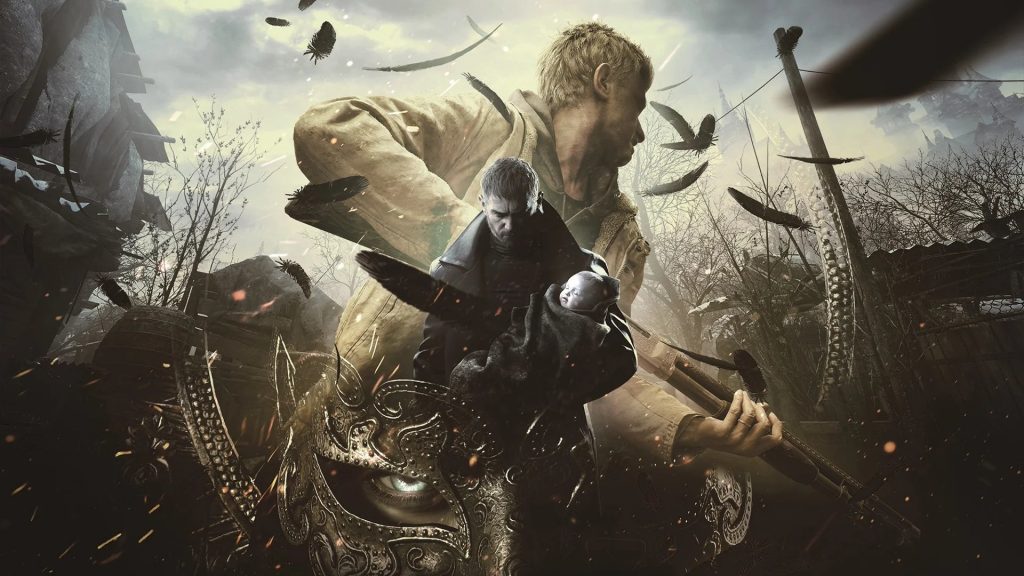
Resident Evil: Village is the latest game to released from the franchise and highlights Capcom’s desire to move away from traditional numbered entries.
It released on 7th May 2021 and at time of writing has already sold 3 million units, receiving very high praise from critics and fans.
The story follows on three years after the events of RE7 as Ethan and Mia are raising their daughter Rose and trying to move on from what happened at the Baker farm.
One night, Chris Redfield shows up at their home, kills Mia and takes Rose away, prompting Ethan to track them down.
He arrives at a remote village where everything is not as it seems, as the villagers are being hunted and killed by mysterious creatures, ruled over by four lords and worship a woman called Mother Miranda.
25th Anniversary
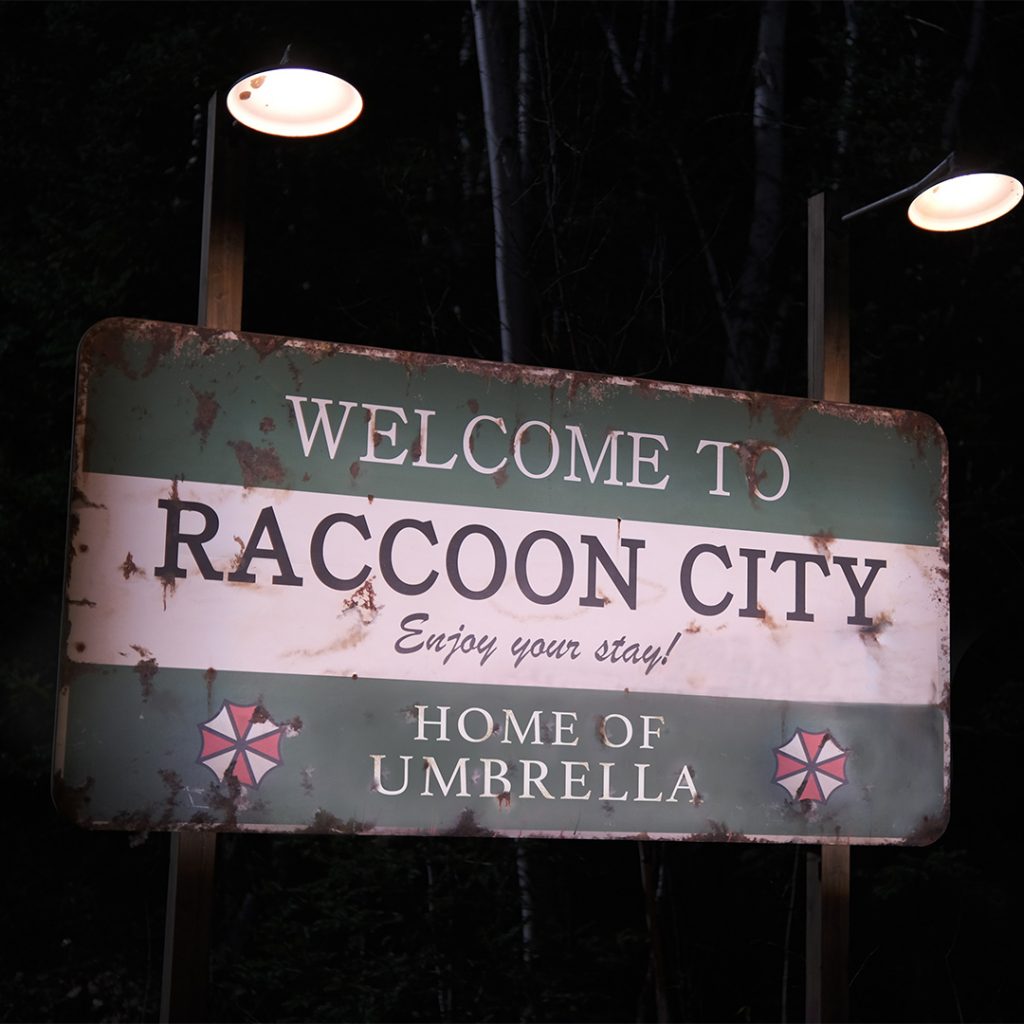
As far as anniversary celebrations go, Capcom has other projects planned for release later this year.
A new animated Netflix series is set to release in July, bringing back Leon and Claire in a brand-new story and featuring the voice actors behind their portrayals in the RE2 remake.
During a livestream where Capcom revealed information about RE: Village, an online multiplayer arena shooter game called RE: Verse was announced to be releasing for free for owners of RE: Village later this year.
The original RE4 is also set to receive another port, this time to be playable entirely in VR on the Oculus Quest 2 sometime in 2021.
The Oculus Quest 2 is one of the latest VR headsets to release, featuring two hand controllers and no wiring.
Finally, a new live-action film is currently in development, separate from the older movies and more faithful to the source material.
The official title was revealed as Resident Evil: Welcome to Racoon City and will recreate the story from the first two games, set to release towards the end of the year.
